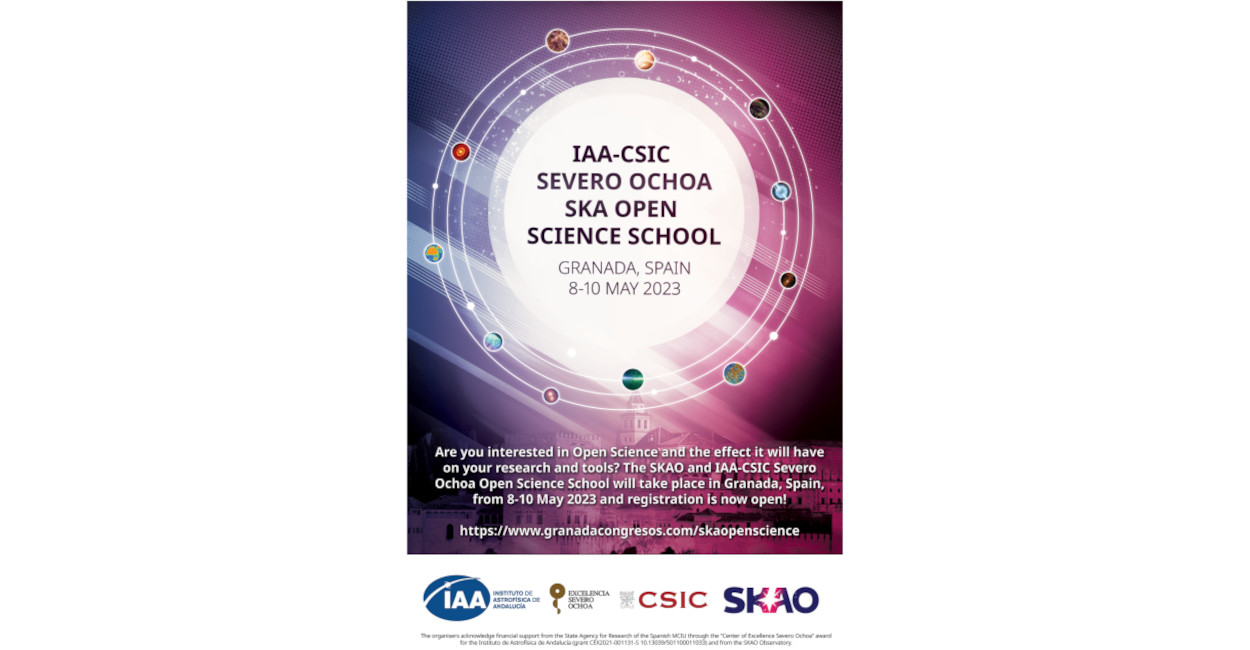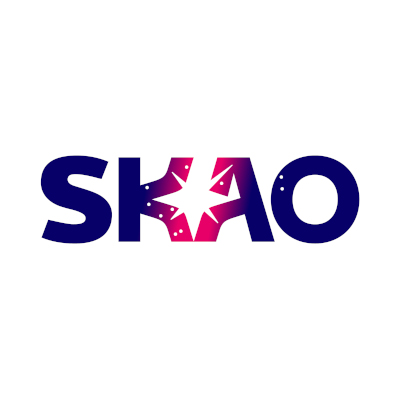
IAA-CSIC Severo Ochoa SKA Open Science School
The First SKA Open Science School is organised under the IAA-CSIC Severo Ochoa Program and it is endorsed by the SKA regional centre partner training programme. It will be a hybrid event that will allow remote participation to make it more inclusive, sustainable and accessible to the global astronomy community.
SKA will be a world-leading facility and as such it aims to follow and lead best practices in scientific integrity such as those promoted by the Open Science movement. The concept of Open Science facilitates reproducibility of scientific studies by making data and methods more accessible, understandable and reusable. Furthermore, Open Science contributes to democratising information and to reducing inequalities in the access to infrastructures, hence impacting areas related to some of the United Nations Sustainable Development Goals.
Open Science is rooted in SKA’s foundational principles and the reproducibility of SKA science data products is one of the Observatory metrics for scientific success. The SKA Regional Center Network (SRCNet) will play a key role enabling big scientific collaborations and it will provide the framework to implement SKA Open Science policies.
The school will provide a general overview of different aspects of Open Science and how it is connected to collaborative and sharing practices that are encouraged by the SKA Observatory.
This school brings an opportunity to anyone from the astronomy and the SRCNet community to have a complete and detailed view of Open Science policies, tools, as well as the ongoing activities related to Open Science at the SKAO and the SRCNet. International experts will provide a detailed and updated view on each of the school topics, and lectures as well as tutorials and hands-on sessions will facilitate our understanding from a practical point of view, encouraging questions and discussion.
“Noting the transformative potential of open science for reducing the existing inequalities in STI and accelerating progress towards the implementation of the 2030 Agenda and the achievement of the Sustainable Development Goals (SDGs) and beyond, particularly in Africa, least developed countries (LDCs), landlocked developing countries (LLDCs), and small island developing States (SIDS), Mindful of UNESCO’s global priorities, namely gender equality and Africa, and the need to mainstream all these aspects in open science policies and practices with a view to addressing the root causes of inequalities and providing effective solutions to that end, Considering that more open, transparent, collaborative and inclusive scientific practices, coupled with more accessible and verifiable scientific knowledge subject to scrutiny and critique, is a more efficient enterprise that improves the quality, reproducibility and impact of science, and thereby the reliability of the evidence needed for robust decision- making and policy and increased trust in science…” – UNESCO recommendation on Open Science


